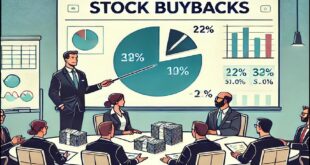It seems logical that a scary, destructive terrorist attack, particularly one that implies more attacks to come, would be bearish for stock prices – but has that actually been the case?
more attacks to come, would be bearish for stock prices – but has that actually been the case?
By Vadim Pokhlebkin/Robert Prechter (elliottwave.com) originally* entitled Myth #8: “Terrorist attacks would cause the stock market to drop.”
The exogenous-cause model would have us believe that all of the exceptionally dramatic swings in the DJIA as shown in Figure 17 below must have been caused by equally dramatic news: bad news at each of the peaks and good news at each of the bottoms.

As it happens, there was indeed a lot of dramatic news during this time:
- a surprise terrorist attacks on U.S. soil, first the “9/11” attack on the World Trade Center and the Pentagon and
- a slew of mailings of deadly anthrax bacteria, which killed several people, prompted Congress to evacuate a session, and caused havoc lasting months.
Where on the graph of stock prices would you guess all these events have happened? If you guessed “six trading days from a major bottom and all through a six-month rally,” you would be correct – but if you are an exogenous-cause advocate, you would not have made that guess. Figure 18 notes these occurrences.

The 9/11 attack occurred more than half way through a dramatic price decline and only six trading days from its end. Afterward, despite deep concerns that more such attacks were in the works, the stock market rallied for six months.
The first anthrax attack occurred on the very day of the low for the year, and the attacks, deaths and scares continued throughout the strongest rally on the entire graph. To put it more starkly, the market bottomed when they started and topped out as soon as people realized they were over.
If one were to insist upon a causal relationship, one would be forced to conclude that anthrax attacks are bullish for the stock market.
This kind of perverse conclusion is what we invariably reach when examining an exogenous-cause case along with actual data pertaining to it. This is why economists after World War II (see Figure 12 in Part VII) decided that wars were good for the economy. Figure 18 has similar implications for public policy. Should we encourage crazed people to send deadly packages in order to get the stock market to go up? This idea is no dumber than advocating war to get the economy rolling but the evidence for it is right there, just as it was for the supposed “oil shock” of 1973.
We have uncovered at least one irrefutable fact: Terrorist attacks do not make the stock market go down. The assumption behind economists’ repeated implications that terrorist attacks would constitute an “exogenous shock” that would serve to drive down stock prices is shown to be completely wrong…
[The above article is presented by Lorimer Wilson, editor of www.munKNEE.com and the FREE Market Intelligence Report newsletter (sample here) and may have been edited ([ ]), abridged (…) and/or reformatted (some sub-titles and bold/italics emphases) for the sake of clarity and brevity to ensure a fast and easy read. The author’s views and conclusions are unaltered and no personal comments have been included to maintain the integrity of the original article. This paragraph must be included in any article re-posting to avoid copyright infringement.]
*http://www.elliottwave.com/affiliates_pr/archives/2014/10/21/Don-t-Get-Ruined-by-These-10-Popular-Investment-Myths-%28Part-VIII%29-aa.aspx#axzz3IOE2gK92 (© 2014 Elliott Wave International)
If you liked this article then “Follow the munKNEE” & get each new post via
- Our Newsletter (sample here)
- Twitter (#munknee)
 munKNEE.com Your Key to Making Money
munKNEE.com Your Key to Making Money


